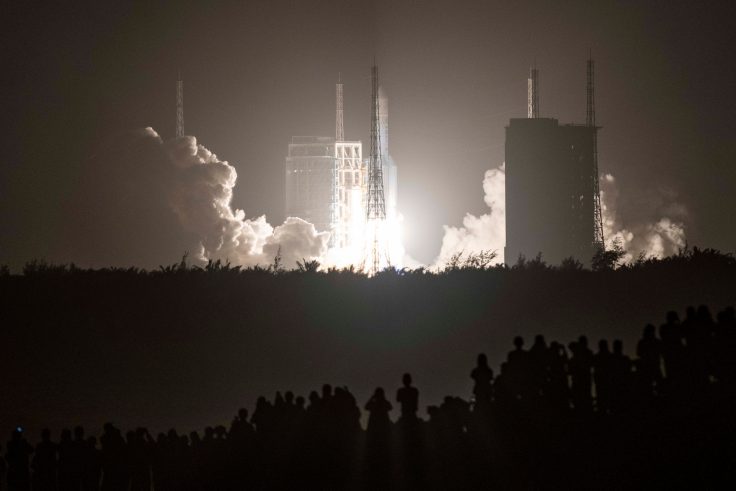China launched a probe directed to collect lunar samples on Tuesday, making it the first country to do so in nearly 50 years.
The unmanned Chang’e-5 lunar mission launched from the southern province of Hainan and will attempt to enter the moon’s orbit. Once fully in orbit, the probe will send two vehicles to the moon’s surface to collect rock and soil samples.
No country has collected lunar samples since the Soviet Union in 1976. The United States last brought back samples from the moon's surface in 1972.
Beijing’s launch comes amid a larger effort by the Chinese Communist Party to achieve supremacy in space. By the 2030s, China hopes to launch its own manned mission to the moon, making it the second country to do so after the United States. China also hopes to launch its own independent space station by 2022.
China’s private space industry is already playing a large role in the regime's ambitions for space. Last week, private space-faring company GalaxySpace announced its valuation rose to $1.2 billion after a new round of investments, including backing from the Chinese government. The company works to close the rapidly shrinking satellite gap between Washington and Beijing.
GalaxySpace is not the only company engaged in such efforts. Since 2014, China has welcomed the creation of around 100 private space companies to bolster its efforts in orbit. Through China's policy of military-civil fusion, the Chinese Communist Party has nearly unrestricted access to the tools and information of these private companies. U.S. defense experts worry Beijing could use its control over private enterprises to threaten American security interests.
A senior Pentagon official told the Washington Free Beacon in September that China works relentlessly to achieve "space great power status" through major investments in military and civil endeavors in space.
The Trump administration has renewed focus on space as a domain of competition by creating the Space Force, reestablishing Space Command, and encouraging American private enterprise to play a role in space. Senior U.S. officials have also met with allies to pursue cooperation on security issues in space.
Given the prospect of a shrinking defense budget under a Joe Biden administration, experts fear the progress made under the Trump administration to promote national security could halt. Aside from sparse congratulatory remarks upon news of successful rocket launches, Biden has not emphasized space issues throughout his campaign.
